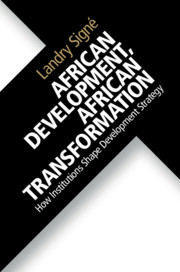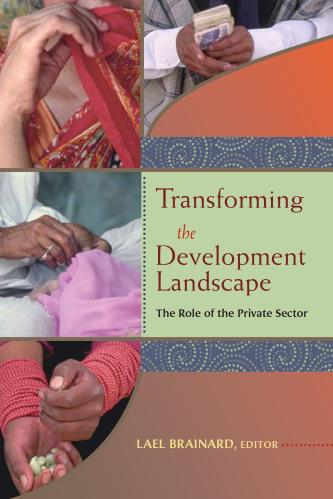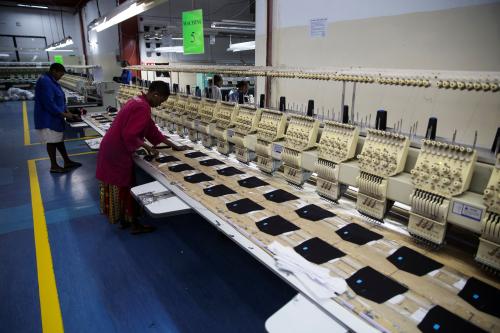The impact of Industry 4.0—the next phase in the digitization of the manufacturing sector driven by computing power, connectivity, and new forms of human-machine interaction—will be wide and profound. It offers exciting opportunities for African manufacturers and small and medium enterprises to create new business models and integrate into global value chains. However, benefiting from Industry 4.0 requires overcoming a myriad of obstacles. Given Africa’s unique context, policymakers must ask the right questions to make sure the continent can capitalize on the revolution. On June 4, the Brookings Africa Growth Initiative and United Nations Industrial Development Organization (UNIDO) explored strategies to anticipate and circumvent the challenges the “New Industrial Revolution” is generating as well as how all of Africa can benefit from Industry 4.0.
Brookings Africa Growth Initiative Director and Senior Fellow Brahima S. Coulibaly opened the event, framing the conversation. He noted that Industry 4.0 presents opportunities as well as challenges for Africa, which are daunting. Addressing these nonlinear challenges, he emphasized, requires the nonlinear solutions that technology offers, and Africa should embrace Industry 4.0. The main question is how Africa can take advantage of Industry 4.0 while managing its unwelcome effects.
Paul Maseli, director of the New York Office and representative to the United Nations for the United Nations Industrial Development Organization (UNIDO), then set the scene by emphasizing that policies for capitalizing on Industry 4.0 in Africa must be able to reconcile the tension between Africa’s current low state of industrial development and poor infrastructure with the high requirements of a digitalized economy.
Throughout the conversation, moderator Jake Bright, author, adviser, and contributor on Africa for TechCrunch and Crunchbase, emphasized the theme of the event: “Industry 4.0 in Africa: Helping or hindering?” By raising concerns that skeptics of the future of industry hold—including the risks of growing unemployment due to automation—he challenged the panelists to explore the nuances of manufacturing trends in African’s Fourth Industrial Revolution. He also pushed for hard solutions to looming obstacles to the continent’s success.
Julius Akinyemi, entrepreneur-in-residence at the MIT Media Lab, agreed that connectivity, in particular, must be enhanced, as it not only enables citizens but also increases trust among them:
Susan Lund, partner at the McKinsey Global Institute, remarked that digitalization goes beyond just fintech (financial technology) applications. Indeed, research that big companies have done to better understand their markets can be done simply on the smartphone of a shopkeeper:
Mary Hallward-Driemeier, senior economic adviser, for finance, competitiveness, and innovation at the World Bank, delved deeply into the unique case of Ethiopia’s recent steps in industrialization. Though the country has seen a lot of success, the emphasis on state-led development has not yet created the spillovers needed to truly spark sustainable industrialization:
Chief of the Business Environment, Cluster & Innovation Division at the UNIDO Department of Trade, Investment & Innovation, Olga Memedovic, also remarked that for Africa to prepare for and harness the New Industrial Revolution, governments must invest beyond infrastructure and into the education and skills training of the continent’s youth.










Commentary
Capitalizing on Industry 4.0 in Africa
July 3, 2018